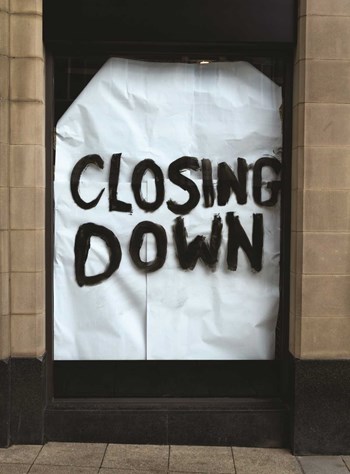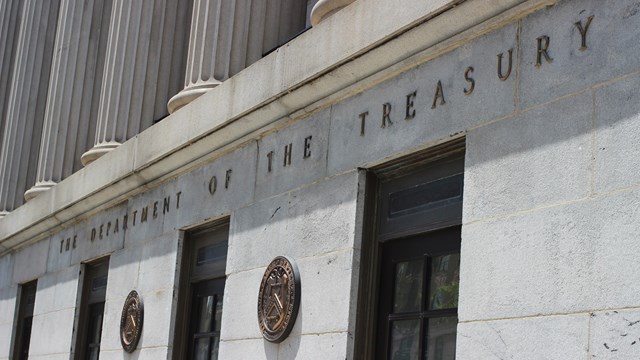
With all the condos in South Florida, it’s inevitable that some associations will run into problems or situations they never expected—including ceasing to be a condo association entirely. These occurrences don’t happen every day, but they do happen, and they bring into play all sorts of complex issues.
So, what happens when a condominium dissolves as a corporate or residential entity? Sometimes it entails literally dismantling physical buildings but more often it means dissolving the condo form of government and replacing it with something else, such as a rental development. Such situations bring into play all sorts of legal and financial questions, such as what happens to the common areas? And what happens to those owners who don't want to convert to rental?
Why Go?
There are several reasons why a condo association would decide to dissolve. Attorney Donna DiMaggio Berger, a shareholder with the law firm of Becker & Poliakoff in Fort Lauderdale, gives several of them.
One might be a lucrative offer from a developer who covets an older community’s prime location. This is one of the scenarios in which an HOA might literally be demolished—a developer could decide to raze the buildings and build something else there. Another might be if a building has been extremely damaged as a result of a catastrophic event like fire or hurricane, and would require significant ongoing maintenance and repairs. There may not be sufficient insurance proceeds and owner assets to rebuild—and that can lead an association to disband.
In another scenario, says attorney Kevin Fabrikant, owner and partner in the law firm of Kevin H. Fabrikant & Associates in Hollywood, a building owner might initially try to convert a rental development into a condo, only to have the venture fail. “I’ve seen rentals converted to condos where an owner can only sell 10 percent of the units. The owner says, `Let’s get back to rental and dissolve the association.”
Berger calls these “cramdown” terminations, but says that “cramdowns are becoming less frequent as the real estate market grows healthier.”
Could a condo association dissolve purely because of financial pressure? “In theory, it could be involuntarily disbanded, if it was ordered by a creditor because the association is insolvent,” says Fabrikant. “But even so, they would want to file for bankruptcy first.”
According to Fabrikant, another situation that could result in the dissolution of the association if it's not corrected, is if an HOA's administrators are negligent, and chronically fail to file annual reports. Then, he says, “They administratively dissolve. They can’t hire staff, and they can’t sue unless they pay their fee and get out of the process. One association had to pay $5,000 to $7,000 to do that. They said they thought it would be better to form a new association. But the problem is now what to do with the condominium documents. They have priority over any subsequent liens.”
How It’s Done
How is the dissolution of a Florida condominium carried out? Attorney Alexander Dobrev, partner in the Distressed Real Estate Solutions Practice Group of the firm of Lowndes Drostick Doster Kantor & Reed, P.A. in Orlando, takes us through the process.
Florida’s original condominium law dates back to the 1960s. At that time, many of the situations we’ve mentioned did not exist. In 2007, to make easier for those associations that wanted to voluntarily dissolve their condos, revisions were made to the Florida Condominium Act. Before 2007, termination of an association required 100 percent approval from unit owners, as well as affirmative approval from all lien holders, unless the condominium declaration specifically provided for a lower approval percentage.
Since 2007, Dobrey continues, revisions in the Florida Condominium Act have made the process simpler. Termination now requires 80 percent approval and less than 10 percent opposition, by vote or written objection. Lien holders’ approval is not required, although they do have the right to contest, if not paid in full, says Dobrev, who is a vice-chair of the Condominium and Planned Development Committee of the Florida Bar.
During the termination process, according to Dobrev, the association continues to exist with all the powers it had before the approval of the plan, employing attorneys, agents or other professionals to conclude or liquidate its affairs. It can carry out contracts; collect, settle and pay debts; defend suits against the association, conduct lawsuits in the name of the association and more.
The plan of termination must be a written document executed by the unit owners having requisite percentage of voting interests to approve the plan as well as the termination trustee. If the plan is approved by the required number of unit owners and lien holders, it must then be recorded in the public records. A notice that the approved plan has been recorded, adds Dobrev, must be sent to all unit owners by certified mail within 30 days after the plan is recorded. A unit owner or lienor may contest a plan by starting a summary procedure under s.51.011, F.S., within 90 days after the plan is recorded.
The association acts as the termination trustee, unless another person is appointed in that position.
Who Gets What?
As far as allocation of proceeds is concerned, unless the declaration expressly provides for the allocation of the proceeds of sale of condominium property, the plan must first apportion the proceeds between the combined value of all units and the value of the common elements, based on their respective fair market values just before the termination.
The value is determined by one or more independent appraisers selected by the association or the termination trustee. Until the distribution takes place, the assets of the condo are held by the trustee for the benefit of the unit owners and lienholders.
The value of the common elements will then be paid to the owners according to their proportionate share in them, Dobrev says. Also, “the portion of proceeds allocated to the units is apportioned among the individual units.” Liens on a unit are transferred to the proceeds of the sale of the condo’s property.
In addition, not less than 30 days before the first distribution in connection with a sale, according to Dobrev, the termination trustee must deliver a notice of the estimated distribution, by certified mail, return receipt requested, to all unit owners, lienors of the condo property and lienors of each unit, “stating a good-faith estimate of the amount of the distributions to each class and the procedures and deadline for notifying the termination trustee of any objections to the amount.”
The deadline for objections must be at least 14 days after the notice was mailed. And within 90 days of the plan’s effective date, the trustee must provide a certified copy to the Division of Florida Condominiums, Timeshare and Mobile Homes of the Department of Business and Professional Regulation (DBPR).
Those Who Have To Sell or Move
What happens to those owners who have to sell or move?
“There is certainly an inconvenience factor involved, particularly to the elderly, when it comes to having to move out once the association is terminated,” Berger told The South Florida Cooperator.“This is the case when the building is going to be torn down, and owners have no choice but to relocate. In some terminations, the building is going to be converted into a rental building, and in those instances, existing owners do have the option of signing a lease agreement for their unit.”
Furthermore, in the event of a situation where the association votes to dissolve, but not unanimously, what happens to those few honors who voted against the dissolution. “You have to deal with those two or three unit owners and buy their units back,” says Fabrikant.
There are two schools of thought regarding those owners who oppose a voluntary termination, Berger says. “One is the prevailing sentiment that the will of the majority typically and logically rules in a shared ownership community, as you do not want one or two owners negatively impacting the real property rights of everyone else.” The second opinion, she says, is “the inequity of losing one’s home against one’s will.”
Dissolving a condominium association is no easy task, and many pitfalls can ensue. Attorney Jean Winters, owner and managing partner of the law firm Winters & Winters, P.A., in Boca Raton, writing in the Condos and HOAs blog of the Sun-Sentinel, gives an example of a case where the owners in a condominium association voluntarily dissolved but took no other action. When it came time for a buyer to purchase the condominium, that buyer could not obtain title insurance because its legal description was still that of a condominium.
“In short,” she writes, “it is not possible legally to terminate a condominium merely for voluntarily dissolving the association.” To dissolve a condo association, the condominium association form of ownership itself must be terminated.
Fabrikant gives an example of another unusual case, but one that apparently didn’t have many negative consequences, if any. The developer of one condo development that might have been dissolved decided not to do so. “He purchased a whole bunch of those properties, then he rented them out. It’s still technically a condo but its management has the structure of a rental management [renting apartments, collecting rents, etc.] The developer ended up renting more than 100 units.”
Finally, on the subject of tax ramifications of dissolving a condo, Berger says, “This is a question every community contemplating dissolution must as its CPA for proper guidance, as there can be personal tax consequences with the distribution of proceeds.”
Clearly, dissolving a condominium association is a complicated, time-consuming process. If it’s just for economic reasons, filing for bankruptcy might be a better option. But if your association has its heart set on doing so, it’s imperative that you consult with an attorney with expertise in dealing with condos and experience in handling such matters.
Raanan Geberer is a freelance writer and a frequent contributor to The South Florida Cooperator.






2 Comments
Leave a Comment